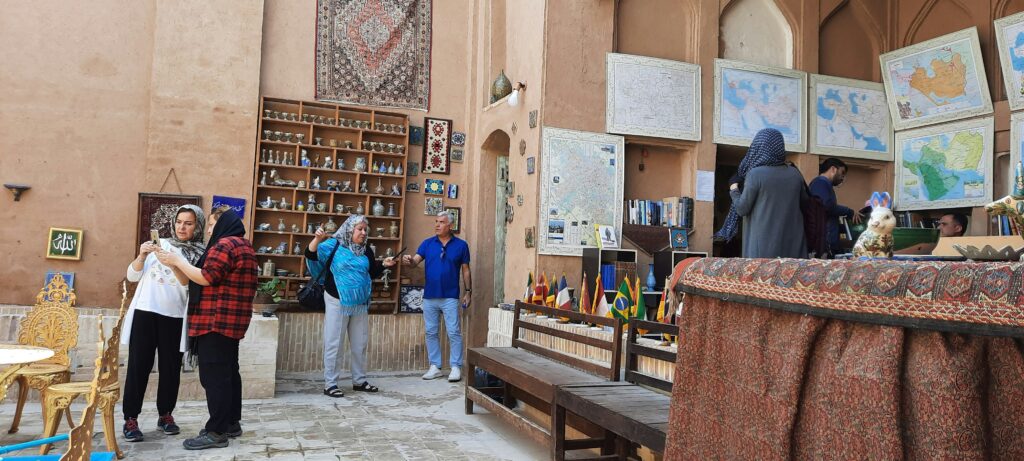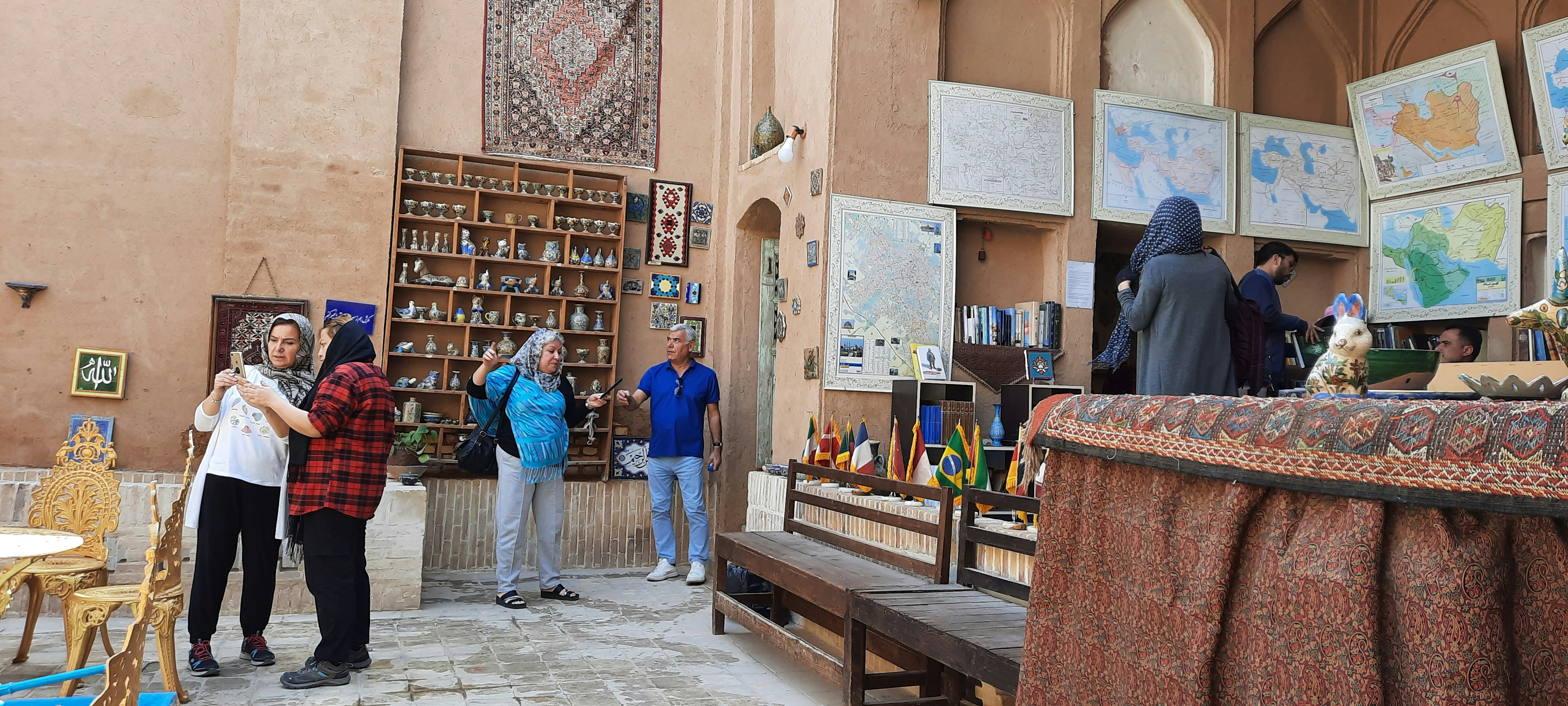
Understanding Cultural Immersion
Cultural immersion trips refer to travel experiences where individuals engage deeply with the local culture of their destination. Unlike typical travel, which often involves sightseeing and short visits to popular attractions, cultural immersion emphasizes meaningful interactions with the local community. The essence of living like a local is rooted in experiencing the traditions, customs, and daily life of a particular region, allowing travelers to gain a more authentic perspective on their surroundings.
The significance of cultural immersion in tourism cannot be overstated. Traditional tourism often promotes a superficial understanding of a place, focusing on iconic landmarks and tourist hotspots. In contrast, cultural immersion trips encourage travelers to participate in community activities, explore local markets, and embrace traditions. This level of engagement fosters a greater appreciation for the diversity of lifestyles and customs encountered during their journey.
Living like a local can manifest in various ways, such as cooking classes that teach regional recipes, language lessons that enhance communication, or volunteering opportunities that allow travelers to contribute positively to the community. Each of these experiences provides a richer understanding of the local culture and helps travelers connect on a personal level with the inhabitants of the destination.
Moreover, immersive travel contributes to sustainable tourism by promoting respect for local customs and minimizing the impact of tourism on the community. As travelers prioritize authentic experiences, they can help preserve the unique characteristics of the region, ensuring that future generations can enjoy the same rich cultural tapestry. Through such engagements, individuals not only learn about the spectacular diversity of global cultures but also cultivate empathy and understanding in an increasingly interconnected world.
The Impact of Homestays on Cultural Experiences
Homestays have emerged as a pivotal component of cultural immersion trips, offering travelers unique opportunities to engage with local cultures in ways that traditional accommodations often cannot replicate. By residing in the homes of local families, travelers access a more authentic perspective of everyday life, allowing them to experience the nuances of local customs, traditions, and daily routines.
One significant advantage of homestays is the personal interaction afforded to guests. Rather than merely observing a culture from afar, participants engage in conversations with their hosts, fostering deep connections and facilitating the exchange of ideas and values. This interaction often leads to an enriched understanding of the culture, as travelers encounter different viewpoints and lifestyles. For instance, a traveler might learn to appreciate the importance of family gatherings, local festivals, or culinary practices directly from those who celebrate and uphold them in their daily life.
Moreover, sharing meals with host families provides an intimate glimpse into the culinary traditions of a region. Travelers often report that meals become a highlight of their stay, where the preparation and consumption of food serve as a gateway to understanding local ingredients, cooking techniques, and cultural significance. Participating in these shared experiences fosters emotional connections, bridging gaps between different cultures and creating memories that resonate long after the trip has ended.
Household routines further amplify the benefits of homestays. Engaging in daily activities—be it gardening, shopping at local markets, or participating in household chores—offers travelers practical insights into local lifestyles. Such involvement contributes to personal growth; when travelers return home, they often carry with them not only tales of adventure but also a renewed appreciation for simplicity and connection. Surveys reveal that many participants in homestays experience significant emotional and educational growth during their stays, emphasizing the transformative power of this form of cultural immersion.
Savoring Local Cuisine: A Culinary Journey
Cuisine is often referred to as the heart of a culture, encapsulating traditions, values, and identities within its flavors and presentation. Engaging with local food not only tantalizes the palate but also offers profound insights into the cultural fabric of a region. For travelers seeking authentic experiences, immersing themselves in local cuisine is an essential aspect of connecting with a new place.
Participating in traditional cooking classes serves as an excellent way for individuals to dive into culinary arts native to a culture. Whether it’s mastering the art of making pasta in Italy or learning to prepare fragrant curries in India, these classes foster a deeper appreciation of local ingredients and cooking techniques. Such experiences not only empower travelers with new skills but also allow them to engage with local chefs who share stories behind each dish, thereby enriching their understanding of cultural significance.
Food markets represent another vital component of cultural immersion, offering an array of ingredients and regional specialties. Strolling through the bustling markets, travelers can witness the vibrant colors and aromas of fresh produce, spices, and street foods. Interacting with local vendors not only supports the economy but also opens avenues for conversations about culinary practices and seasonal dishes unique to that location.
Communal dining plays an essential role in many cultures, further enhancing the immersive experience. Sharing a meal with locals at family-style restaurants or during home-cooked dinners invites travelers into the intimate realm of cultural cuisine. Meals become a celebration of community, where stories, traditions, and recipes are passed down through generations.
Finally, to fully engage in the local food scene, travelers should endeavor to explore different culinary options, from street food to fine dining. This exploration fosters authentic connections and allows for memorable moments that transcend mere travel. Embracing local cuisine can ultimately lead to a more enriching and unforgettable cultural experience.
Celebrating Local Festivals: A Unique Cultural Encounter
Participating in local festivals is an enriching way to immerse oneself in the culture of a destination. Festivals serve as vibrant expressions of tradition, offering travelers a unique lens through which to experience the customs, art, music, and communal spirit of a community. They often highlight historical events, seasonal changes, or religious beliefs, allowing visitors to witness local traditions in their most authentic form. Engaging with these celebrations fosters a deeper understanding of the culture, making travel not just a leisure activity, but a transformative journey.
Across the globe, numerous festivals exemplify the essence of cultural heritage. For instance, the Diwali festival in India represents the victory of light over darkness, drawing participants into a whirlwind of colorful decorations, festive foods, and communal gatherings. Similarly, the Carnival in Brazil is renowned for its pulsating rhythms, elaborate parades, and a sense of unity among diverse groups. Other noteworthy celebrations include the Harbin Ice Festival in China, showcasing stunning ice sculptures, and La Tomatina in Spain, an exuberant food fight that highlights local festivity. Each of these events encapsulates the heart of their respective cultures, providing travelers with memorable experiences.
To respect the local culture while celebrating these festivals, travelers should consider taking the time to research the traditions, etiquette, and history behind each event. Understanding the significance of attire, rituals, and participation guidelines ensures a respectful engagement that enhances the experience. Additionally, planning trips around festival dates not only optimizes the travel experience but also supports local communities by participating in their economic activities during peak seasons. In essence, immersing oneself in local festivals presents an unforgettable opportunity to celebrate cultural diversity and foster connections with people from different backgrounds.

